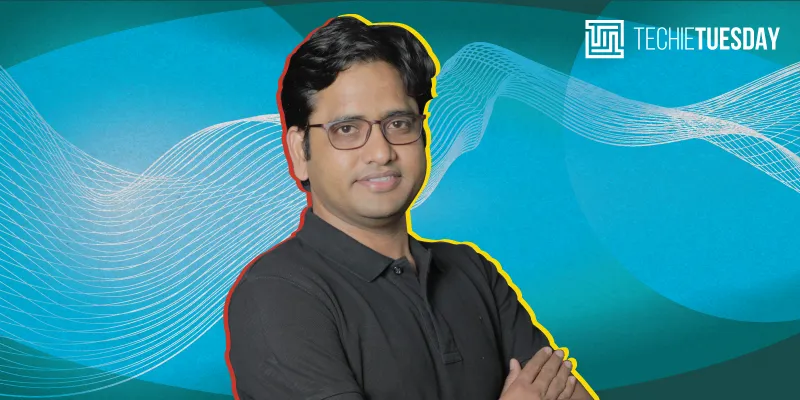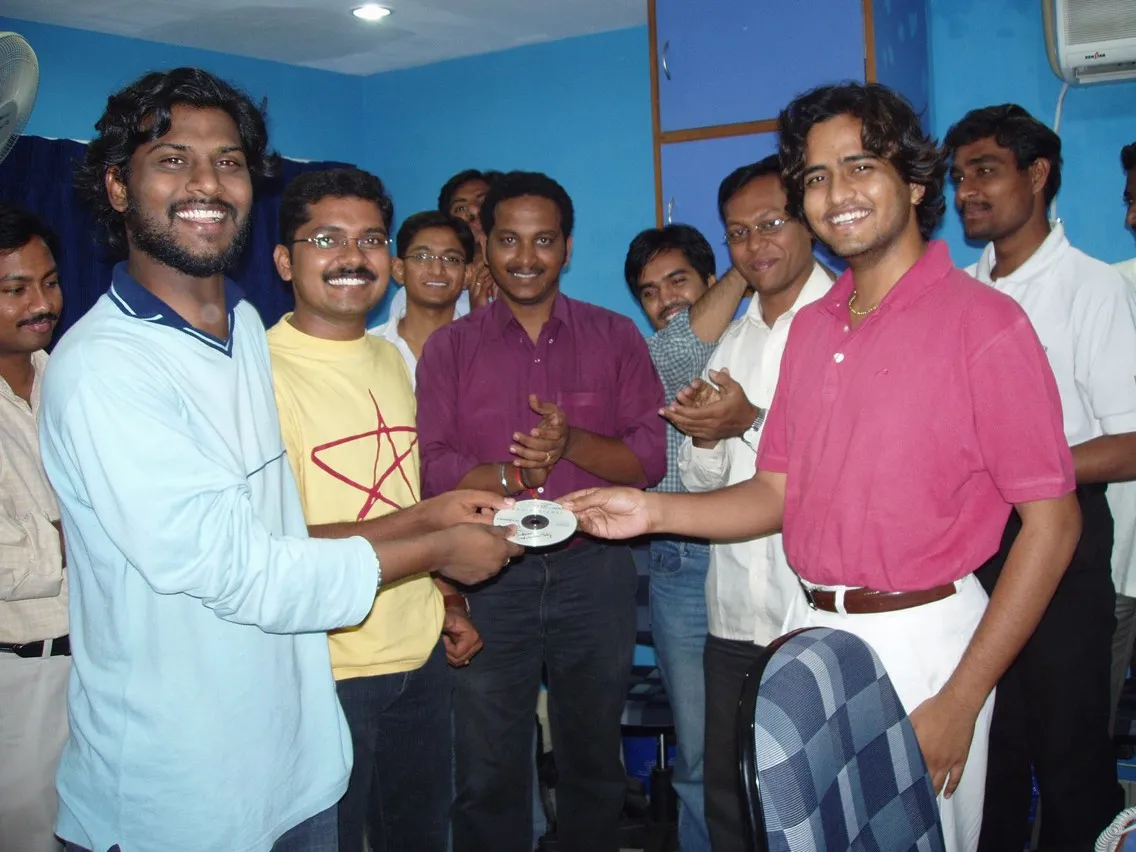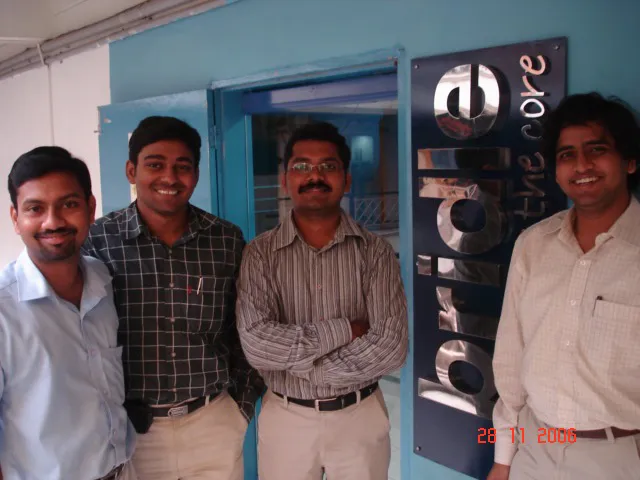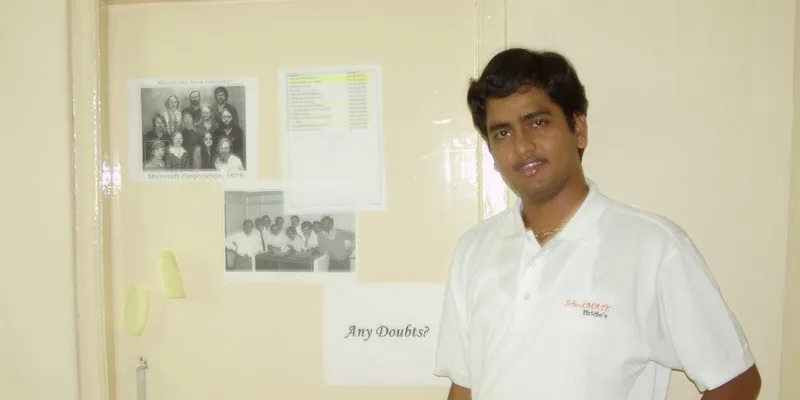[Techie Tuesday] A reluctant engineer who went on to build tech products before their time
If Amazon doesn't have a Whole Foods grocery near you, there are non-perishable groceries ( food that doesn't spoil) that Amazon can ship to you

For Ramki Gaddipati, CTO and Co-founder, Zeta, it is not the product or the solution, but what matters is solving a problem.
In his journey as a coder and a tech lead, the 38-year-old techie has possibly developed and created products way before any successful startups even conceptualised the idea.
First, he built a mobile-operated home automation system in 2004, and in the next four years, he went on to build a B2B2C healthtech platform that reminded patients of their medicine timings. He also developed a school management platform.

Ramki Gaddipati, Cofounder and CTO of Zeta
Unfortunately, these products didn’t scale as Ramki had to exit his startups due to personal reasons.
“There has always been a sense of abandonment. Zeta is my way of looking back and doing something I always wanted to do,” says Ramki.
Ramki founded Zeta along with Bhavin Turakhia in 2015. The fintech startup provides digitised enterprise solutions for employee tax benefits, automated cafeterias and digital payments.
Despite being the CTO of a company today, Ramki calls himself a reluctant engineer. He says he always wanted to be a doctor.
“It was the only thing I knew. I was heavily influenced and inspired by doctors. I didn’t have any idea and exposure to engineering,” says Ramki.
Engineering happened by chance.
In an interaction with YourStory, Ramki talks about his journey from joining BITS Pilani, which exposed him to engineering and computers, to letting go of opportunities due to personal problems, and building products from scratch to solve real problems.
A reluctant engineer
Hailing from Tenali in Andhra Pradesh, Ramki’s mother was a typist, who was running a typewriting institute, and his father was a forest officer. But he also spent a lot of time with his maternal grandparents.
He used to juggle between the two, and spent every alternate year with each of them. As a result, he did his schooling from 11 different places across Andhra Pradesh.
While Ramki could’ve chosen to run his mother’s institute, he wanted to study medicine, which he says was his first choice. But life had other plans for him. For his 12th admissions, while he chose Physics, Chemistry with Biology, his school Sri Sai Residency did not get enough students for Biology, and Ramki had no option but to choose Mathematics instead.
He later joined BITS Pilani. Ramki says it wasn’t easy getting into a prestigious institution like BITS as during those days, coaching centres for engineering entrances was not the fad. However, he ensured he got the kind of exposure that was required to get through.
“I had the best teachers in school. They not only made me love mathematics but exposed me to engineering,” recalls Ramki.
While there were other engineering electives, Ramki wanted to pursue Computer Science.
Commenting on this, he says: “I think I have a good level of impatience. For me, it has always been important to see results quickly. When it comes to traditional engineering courses, the feedback loop is too long. But with Computer Science, you think of a project, execute it, and deploy it quickly.”

While his first preference was Computer Science, Ramki could not pursue the course as he was not the state topper. He had to take up BITS Management Studies.
Ramki recalls, “The exposure you get in the first few weeks at BITS is like in no other engineering college. It makes you responsible for your curriculum – every single subject is your own choice.”
While in college, his idea was simple – pick one course each semester and excel in it.
Ramki’s first class at BITS was also a bit unusual. He chose Computer Programming as an elective, only to realise that it was in huge demand. The class had nearly 400 students, and Ramki had to attend it standing outside and peeking in from the window.
It was his first interaction with computers as well.
“The lecture was delivered by Usha V Subramaniam. That first class was like love at first sight – my affinity towards programming and computers started with that class,” Ramki fondly recalls.
Once in love with computer programming, there was no looking back for Ramki.
Programming is a scientific art
But what does Ramki really love about coding and engineering?
“If you ask an artist what they love about art, they will say it is about representing immediately what’s in one’s mind. Computer programming is similar, you don’t need an external dependence to validate it. You think, create, and validate – the entire loop is in your hand and that is super powerful,” Ramki says.
According to Ramki, computer programming is about being constantly creative. He believes that what we practice is not science, there is much more of an art in it.
The first relevant programme he built was for a cultural fest organised by the Management Associate at BITS. He wrote a programme for students to browse through the schedule on the college website. Later, he built an MP3 player for himself.
BITS opened his mind and horizons – the curriculum and ‘openness’ of the system provided high learning opportunities to Ramki.
“BITS is a completely different kind of school. You cannot help but love learning there. I came out a different person,” Ramki says.
He graduated from BITS in 2002. He says, “I would call myself a graduate in Computer Science from BITS, even if my degree says Management Studies.”
Third-time lucky
After college, he immediately joined web server application LeapStone Systems as a Software Engineer. At LeapStone, he developed an HTTP interface for Over the Air provisioning system supporting WML, xHTML, and HTML user agents.
After a year-long stint, he went back to BITS to do his Master of Engineering in Software Systems.
During his second tenure at BITS, Ramki also worked as a Teaching Assistant at the institute. At the same time, along with his batchmate from BITS, Ramki co-founded Bridle Information Technology Systems in 2004. Bridle was the first-ever company to be incubated at BITS Pilani. Being the CEO, he took care of the computer interfacing.

Ramki along with team Bridle
And it was here that he first built the mobile-operated home automation system, way back in 2004. However, the product was not made commercial.
“Our first product enabled one to operate all the household appliances using just the mobile phone,” he says. “We were told to patent the product. So, we went down that path instead of commercialising it,” Ramki adds.
The idea had to be dropped when Ramki realised: “You not only have to build but also sell your products”.
Soon, they moved to Hyderabad from Pilani and started wondering how they can make use of mobile phones in other areas. This is when they built PillPal, a system to remind patients to take their pills on time.
And their entrepreneurial stint continued, and they launched Schoolmate in 2005. It was a platform where parents were updated about their child’s well-being while in school.
“We realised how Indian parents were obsessed with what their children do at school. We gathered an immense amount of data from the platform – there were up to 16 messages or communications per month per student between parents and teachers,” Ramki says.
During those days, schools would usually have someone install the software in its systems for a certain one-time fee. However, Ramki’s senior from college and currently Global VP of Siemens Healthineers, Anupendra Sharma, advised him to “build a service and not a software.”
Schoolmate was then offered to schools as a service by charging Rs 30 per month. In two years, the company had a revenue run rate of Rs 2.3 crore.
However, in 2007, Ramki had to exit the company because of family issues.
“I was unhappy, but it had to be done,” he says.
The US dream
After exiting Bridle, Ramki joined Morgan Stanley in 2007.
“In the second day of work, I was questioning the customer base of a product that had been around for 10 years. I could make and build things there as well. In one year, we gave about five versions of the same product,” he says.

Ramki during his second tenure at BITS Pilani
While Ramki had complete freedom at Morgan Stanley, he always had the urge to go to the US and explore the startup ecosystem at the valley.
“I had a strong notion that a lot of Indian IT services back then and whatever was being built then were ‘me too’ products,” he says.
He wanted to build something that would be different and solve a real problem.
“I wanted to take a year and go to the US. I wanted to explore the startup ecosystem there and understand what was being built and how it was being built. But then I couldn’t go to the US, again because of some family problems,” says Ramki.
It is then that Directi happened.
Architect of frameworks
For Ramki, joining Directi was a memorable stint. He was supposed to attend the interview on November 26, 2008, in Mumbai, the day of the terrorist attacks.
“There were no other employees other than Bhavin Turakhia (Founder of Directi and current Co-founder and CEO of Zeta) and Sandeep Shetty (former Tech Lead at Directi). The interview went on from 10:30 am till seven in the evening. And it ended only because I had a flight that night,” jokes Ramki.
He was initially hired to set up the Bengaluru office after spending a month in Mumbai. That one-month plan extended for two years and Ramki soon had to be back in the US for Directi’s work.
“When I went to the US, I realised that building something good there was like dropping a needle in a haystack,” he says.
Everyone talked about building something new there and Ramki’s idea was to not just build something from scratch but to build something that would last.
“There is a sense of casualness to building things in the US and that doesn’t sit with me,” he says.
Back then, Directi was like his playground and he could build anything that he wanted to.
So, as the Tech Lead, he built multiple messaging services for the company. The most satisfying one being Flock, an enterprise and a real-time team messaging and collaboration platform that focussed on simplifying communication and boosting productivity.
“Slack didn’t exist in 2008, and our go-to-market was not perfect. But on the tech front, we built everything that we could,” Ramki says, “It still sustains numerous iterations on the product because a lot of engineering has gone onto it.”
Despite the hard work and building a ‘kickass’ product, Directi didn’t have a substantial presence in the US.
“We didn’t take that as a market to target, and in retrospect, it was a poor choice. We were very web focussed. We didn’t focus on mobile,” Ramki says.
Passion to build from scratch
Yet, as they say, once an entrepreneur, always an entrepreneur. Ramki couldn’t get rid of the nagging feeling that he wanted to do something of his own.
“I did Bridle but I couldn’t call it a success to my liking. When I look back at it, the ecosystem wasn’t ready to accept something like that,” he says.
“I wanted to do something that was different, impactful, and super successful,” he adds.
“My notice period at Directi was the longest – it was an 18-month-long one. Bhavin and I were preparing each other for my exit,” jokes Ramki.
He went to the US again, but this time to explore.
Mission Zeta
Ramki constantly kept discussing ideas with his friends back home – Bhavin and Hari, who is now a Venture Capitalist.
“There were a few things that excited us, but nothing was more compelling, and I didn’t feel as strongly for anything else as I did for Zeta,” Ramki says.
Bhavin and Ramki had one thing in common – they wanted to pursue a space where they could fundamentally alter or make significant differences.
“When we started, our thesis was very different. We were looking at the technical possibilities in the payments business. We wanted to alter the industry and felt it was possible for payments,” Ramki says.
They felt the payment industry had a lot of possibilities on the regulatory level and there was also room for impact. “With Zeta, we have built a payment enabling technology. Everything else is a product on top,” says Ramki.
Problem solving with technology
“I cannot imagine solving any real-world problems without technology,” Ramki says.
In fact, he feels technology will soon be able to solve people problems.
“Today technology might not be able to emote meaningfully, but it will soon,” Ramki adds.
Ramki’s advice to every techie is to be passionate. “I don’t care if it is programming, algorithms, or operating systems. If you say you want to be good at something, how do you benchmark yourself? If you’re passionate about it, how far are you willing to go?” says Ramki.
He believes that more than being passionate about a product, a techie should be passionate about a problem.
“Do not get married to a solution or a tool,” he advises.
A product should solve a problem and a techie should always invest in a problem. “Your product should solve that one problem,” he adds.
Today, Ramki feels he has learnt to be patient. And whenever he gets time, he does coding.
“Having given a chance, I would prefer a computer over humans,” he jokes.
(Edited by Megha Reddy)

 College Dorm and Apartment Cooking gadgets - if you change the sort settings on the Amazon page, it will show other items by price
College Dorm and Apartment Cooking gadgets - if you change the sort settings on the Amazon page, it will show other items by price

Source link

















